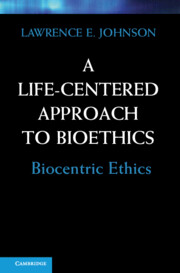1 - Introduction
Published online by Cambridge University Press: 05 June 2012
Summary
It is no more than to state the obvious to remark that life is a matter of absorbing interest to all of us. It is, literally, of vital importance to us, a matter of life and death. Experiences of illness, health, reproduction, and death are normal and central features of our human existence. So too are decisions, practical or moral, that have to be made concerning such matters. Even when they do not directly concern us – as inevitably they shall – such matters are yet of human interest. With changes in our own lives, we as individuals face issues and problems that are new to us. Those close to us have their own problems with which they, or we, must cope. For these reasons alone, issues concerning death, dying, chronic illness, maintenance of health, euthanasia, abortion, and a patient's rights and autonomy all receive considerable attention. The moral dimension of such issues is the subject matter of bioethics. One cannot well summarize the central concerns of bioethics. They are too diverse for that. Moreover, bioethics is in constant change. The issues are continually undergoing metamorphosis because of our increasing knowledge and technical capabilities and the ever-widening range of their application. Genetic engineering, cloning, and other aspects of reproductive technology, to cite only one range of examples, raise increasingly complex and insistent problems. From time to time we find ourselves trying to answer questions that could not even have been asked a few years ago. Meanwhile, old questions linger on or mutate into modified form. Not only is there no one central set of bioethical issues, there is no uniquely correct way of resolving bioethical issues. The best we can do is to go on trying to find the best fit possible with the continually mutating demands of moral practice.
As explained by Warren T. Reich, editor of The Encyclopedia of Bioethics (1978, p. xix),
Bioethics…can be defined as the systematic study of human conduct in the area of the life sciences and health care, insofar as this conduct is examined in the light of moral values and principles.
Bioethics is an area of interdisciplinary studies whose focus depends on the kinds of issues it examines and the nature of ethical theory.
This will do as a working approximation but by no means as a final and definitive statement. Nor shall I attempt to provide a final and definitive statement. I doubt that there can be one because what affects life and health (or departures therefrom) go beyond even the ever-changing boundaries of both science and health care. Rather, I intend to show how conceptions of a sort that I term biocentric can give us increased insight into the diverse issues of bioethics.
- Type
- Chapter
- Information
- A Life-Centered Approach to BioethicsBiocentric Ethics, pp. 1 - 12Publisher: Cambridge University PressPrint publication year: 2010



